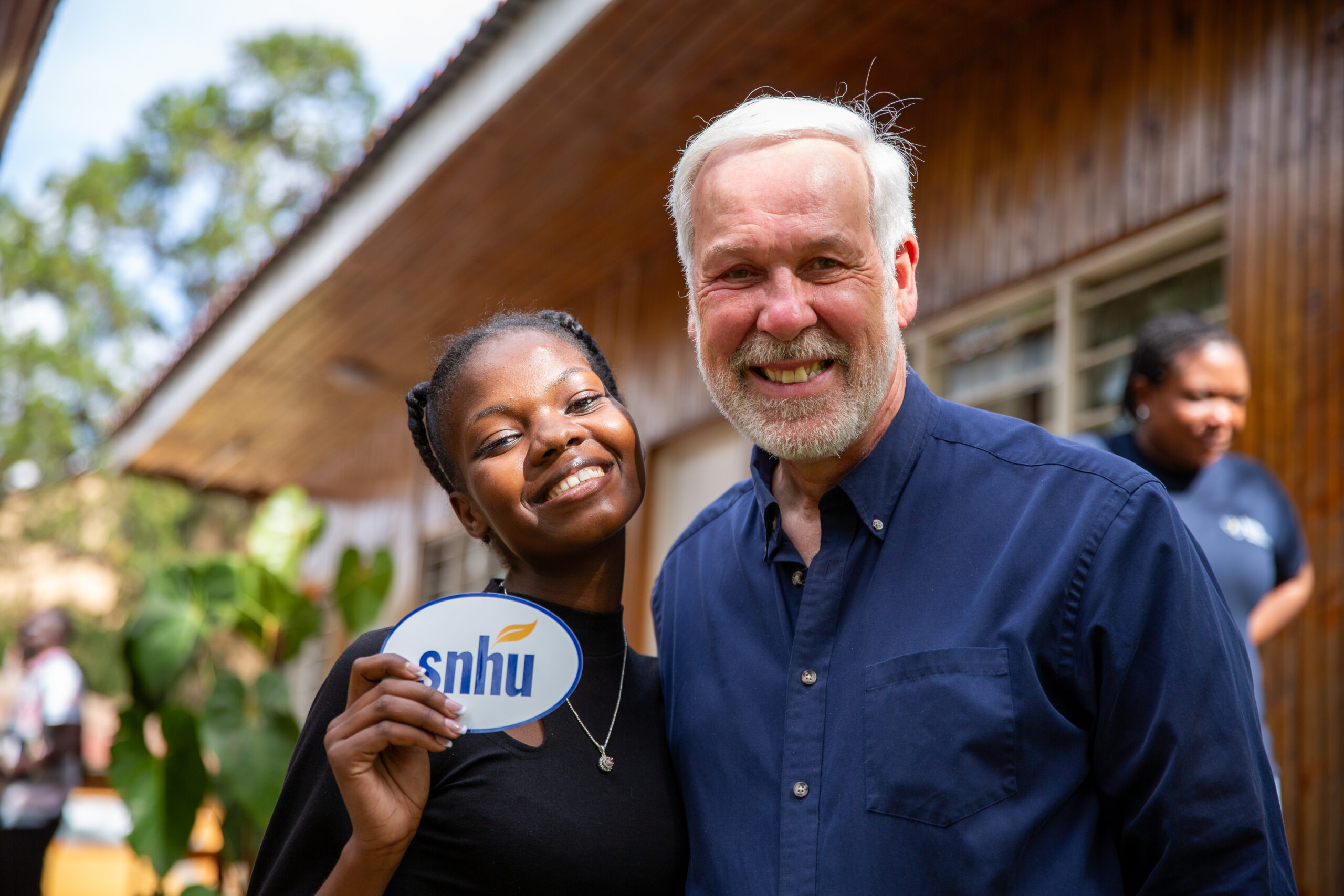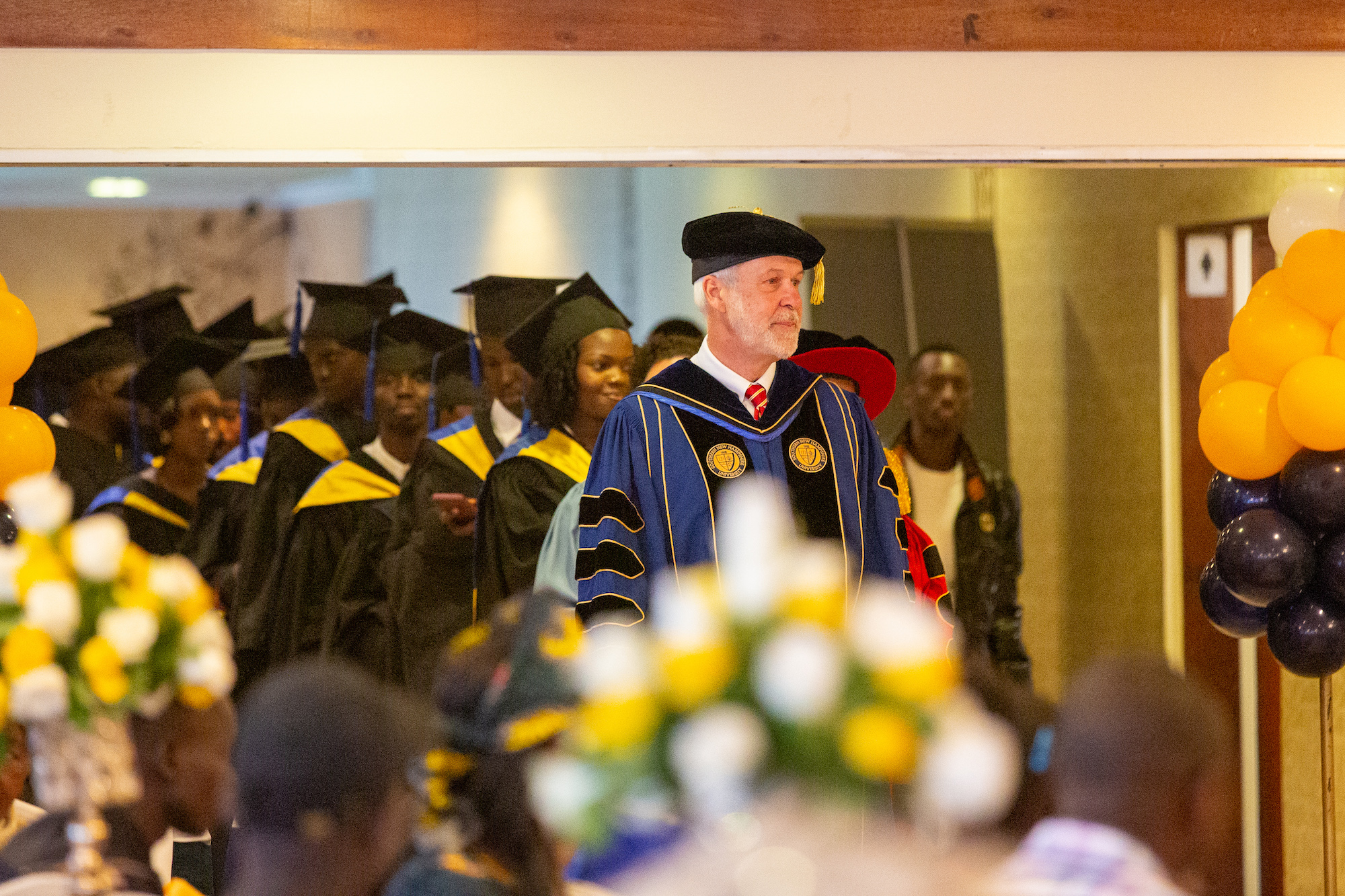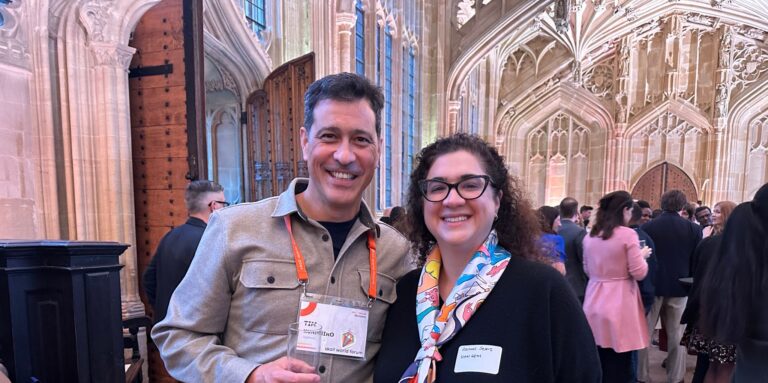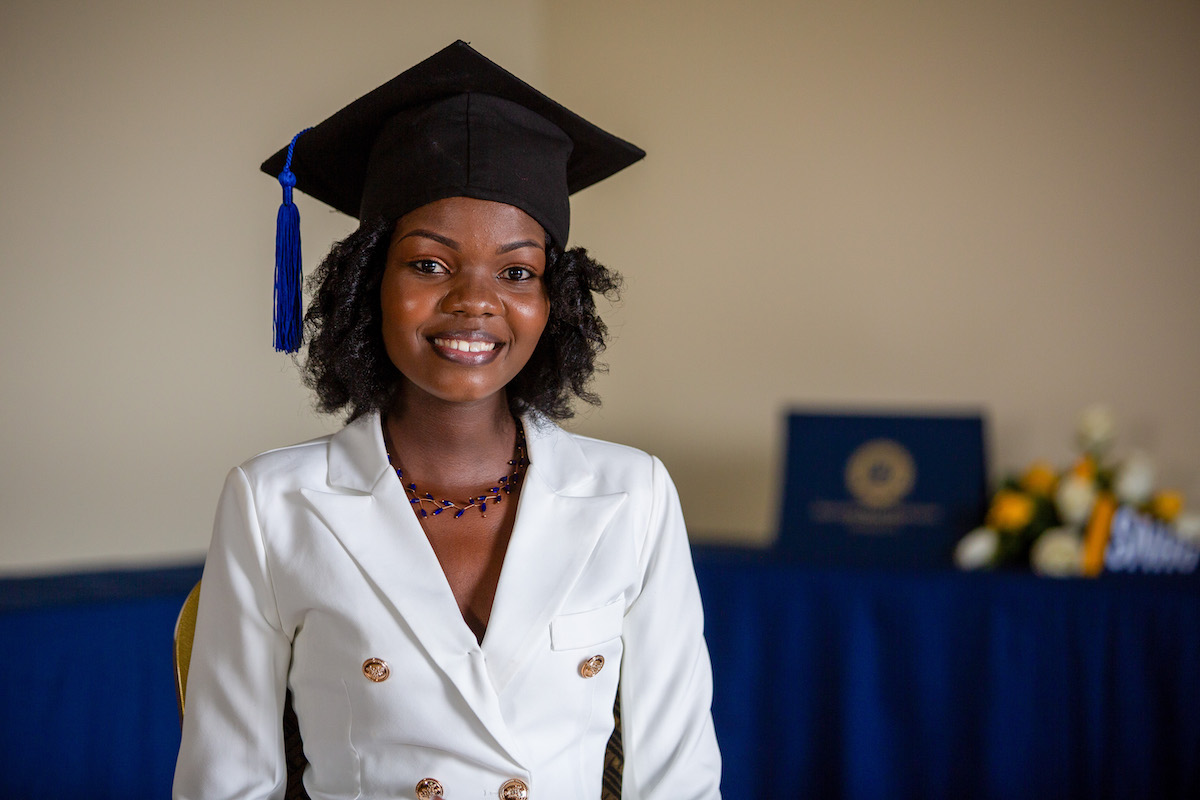SNHU President Paul LeBlanc shares his thoughts on his trip to Rwanda and Kenya and on the global state of refugee education.
In November, SNHU President Paul LeBlanc joined Rachael Sears, SNHU Vice President of Global Initiatives and SNHU GEM Executive Director, on a visit to our Southern New Hampshire University’s Global Education Movement (SNHU GEM) sites in Kenya and Rwanda to meet with faculty, staff, and students and celebrate graduation with the Class of 2023. On his return, Paul published his thoughts from the trip and insights on the global state of refugee education. Read his reflections below.
All our graduations are special — I often say no one does Commencement better than SNHU — but our SNHU GEM graduations are particularly moving. We so often talk about transforming lives, and I’m not sure that happens any more dramatically than it does when a refugee learner completes a degree with SNHU. For example, 90% of our SNHU GEM graduates in Rwanda have jobs when they graduate – their skills are so good and superior to their peers’ that employers now seek them out – and that means they move out of the camp, take their families with them, and start to build better lives. Even when they do not have right of movement (countries impose different laws on their refugee populations, covering things like the right of movement and right to work), a degree can mean employment with an international NGO and better living circumstances.
The impact is not only material. Our SNHU GEM graduates walk through the world differently. Their narrative is no longer “I’m a refugee,” but “I’m a university graduate,” and that carries with it markers of intelligence, accomplishment, and respect. In Kenya, graduates traveled 20 hours by bus from Kakuma refugee camp to the graduation ceremony. Some had never set foot outside of the camp before that trip. Any number of them were crying as I handed them their diplomas. I had to fight my tears as well – it was impossible not to be moved.
The world is a hard place these days, and there are more than 110 million displaced people globally, forced from their homes and communities, often victims of violence and persecution as well as climate crisis. The numbers can be overwhelming, the needs heartbreaking. When I was visiting Kakuma refugee camp before the pandemic, I had a late-night conversation with the director of the camp, a UN professional who has worked his whole career with refugees. I was feeling overwhelmed by the place, and despondent at how few we could serve in the face of so much need. He stopped me short and said, “You don’t realize that it is not just the students you enroll that you are helping. By educating those individual refugees, you are giving hope to all the refugees, to their families, to those who know them.” I often say that SNHU is in the business of hope. The work that Rachael Sears is leading with the SNHU GEM team exemplifies that notion.
I was struck by a New York Times article that said 25% of the world’s population will be African by 2050. It has the world’s youngest and fastest-growing population, and the needs are enormous. But there is also so much talent, energy, and vibrancy there. It’s hard not to fall in love with the place, despite its many challenges. When I meet a child during these trips, I like to think I might be meeting the future world leader, scientist, entrepreneur, or university president that will someday make his or her world a bit better. The great privilege we get is to help educate some of them – many of them – and provide hope for them and for those who follow.
For more from Paul’s trip, watch the video below.



